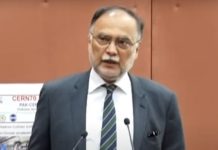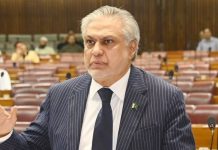From Zeeshan Mirza
KARACHI: The rupee, which recently hit a record low, appreciated by Rs1.74 against the US dollar in the interbank market on Tuesday.
The local currency closed at Rs267.89, up 0.65 per cent from Tuesday’s close of Rs269.63. Tresmark’s Head of Strategy Komal Mansoor said the rupee’s appreciation could be attributed to exporters offloading some of their proceeds. Alpha Beta Core CEO Khurram Schehzad said it appeared that remittances and export proceeds had started pouring in days after the government removed an unofficial cap on the USD-PKR exchange rate.
The International Monetary Fund (IMF) delegation’s arrival in the country for discussions on the ninth review may also have restored some confidence, he added.
The rupee had depreciated by Rs24.54 in the interbank market on Thursday after the government removed the price cap. It was the largest single-day depreciation in both absolute and percentage terms since the new exchange rate system was introduced in 1999, according to Ismail Iqbal Securities.
The PKR lost Rs38.74 between Jan 26-30, with analysts terming the slide a “much-needed adjustment”. The removal of the cap resulted in the interbank and open markets aligning more closely, with currency dealers now expecting a black market in dollars to eventually dry up.
The government’s decision to remove the price cap came as the country’s economic situation worsened due to servicing endless external debts and battling rising inflation.
Besides, left with only $3.68 billion in foreign exchange reserves, Pakistan barely has enough to cover three weeks of imports and desperately needs the IMF to release the next $1bn tranche of its bailout programme to head off a potential default. The removal of the price cap on the exchange rate was one of the conditions set by the global lender for the revival of talks on the ninth review.
Senior government officials earlier told media that IMF mission chief for Pakistan Nathan Porter had already arrived in Islamabad to start a technical discussion with authorities on Tuesday, which would continue till Friday (Feb 3). The second phase of policy negotiations would continue till Feb 9 to finalise a memorandum of economic and financial policies (MEFP).






